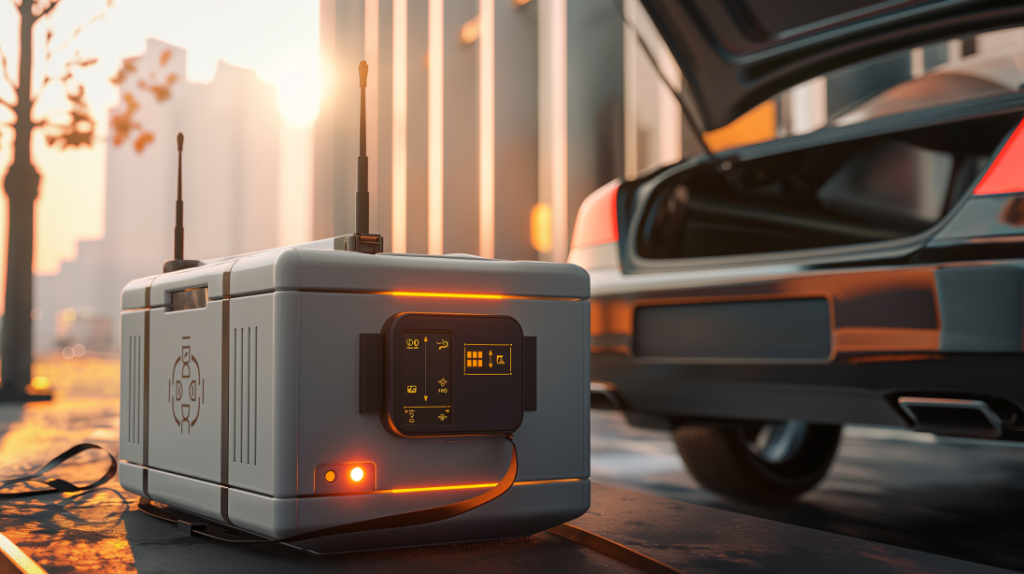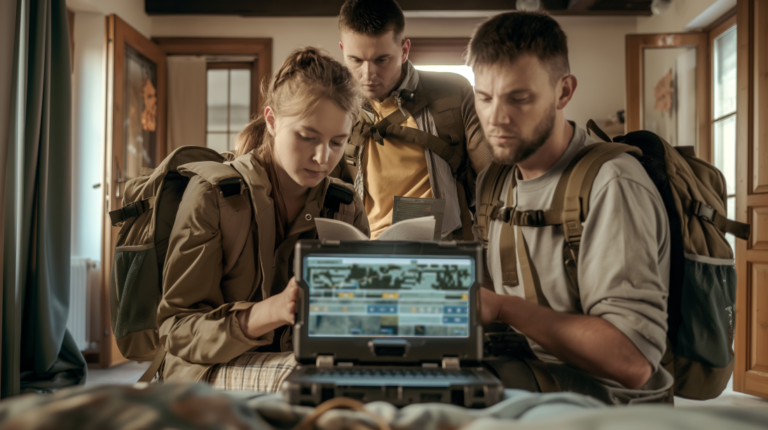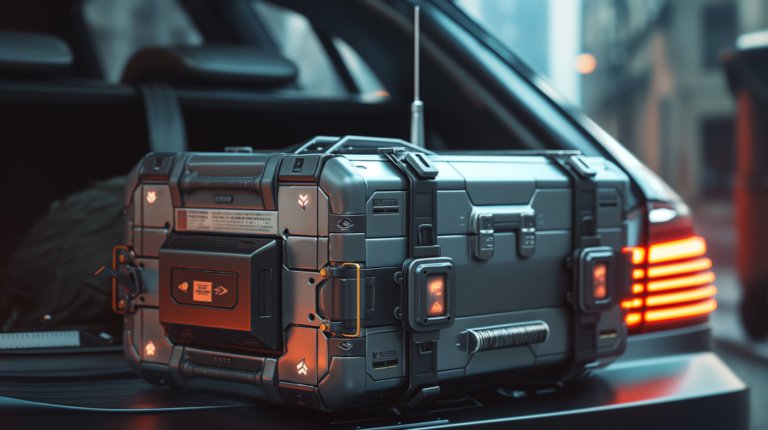Services
CommunityGuard

CommunityGuard is a novel civil defense system that uses AI and IoT to make local communities more resilient to a variety of threats, from warfare to natural disasters.
It offers reliable digital connectivity, advanced monitoring and control systems, AI-based digital assistants and continuous training, providing comprehensive support in crisis situations. It is a key tool for local leaders who want to build self-sufficient and safe communities. Discover how CommunityGuard can revolutionize civil defense in your region. Contact us today to find out more and book a demo.
CommunityGuard: The Next Generation Civil Defense System
In response to the growing risk of warfare, sabotage, hybrid, terrorist attacks, as well as traditional natural disasters, local communities face an urgent need to adapt to the new reality. CommunityGuard is an innovative civil defense system that uses the latest AI, digital connectivity, and IoT technologies to transform the way communities respond to crises. The aim of the project is to complement the usual crisis management systems, which focus mainly on supporting crisis management centres, with a model in which technology is a tool that directly supports residents and local response groups.
Purpose and Scope of the Product
Purpose: CommunityGuard is built to increase the resilience and self-sufficiency of local communities. Its main goal is to provide residents with the tools and knowledge necessary to effectively deal with crisis situations. The system is aimed not only at supporting the existing crisis management structures, but above all at activating residents, volunteers and using modern digital technologies to directly ensure safety.
Scope: CommunityGuard offers a wide range of features:
- rapid dissemination of information,
- integration with IoT systems enabling monitoring and responding to changes in the environment,
- advanced communication tools, including DMR systems, which are reliable even in the most difficult conditions, allowing to maintain contact between residents and emergency services even in the conditions of the disappearance of traditional telecommunications infrastructure,
- Generative AI assistants who, in an emergency, support residents with procedures, digital infrastructure and emergency power supply, mutual aid, and self-organization before emergency services can deliver the necessary assistance.
The System and Its Background
In the context of the growing threat of war and increased sabotage and terrorist activity, it has become necessary to think about civil defence in not only reactive, but above all proactive categories. The traditional approach to crisis management, focused on the support of the crisis management center and specialized services, may be insufficient in the face of threats that require a rapid and decentralized response.
CommunityGuard responds to these new challenges by enabling each member of the community not only to have access to key information, but also to provide tools for personal and collective response, helping themselves and the people around them. The system focuses on the local community as the first line of defense and assistance – preparing its members to act independently through training, providing appropriate equipment and integration with modern technologies that enable effective communication and coordination of activities.
As part of CommunityGuard, residents participate in ongoing programs to develop and maintain competencies; They learn how to use the available tools and technologies to monitor their immediate environment, how to respond to a variety of crisis scenarios, and how to cooperate both among themselves and with specialist services. The training includes not only the technical operation of the equipment, but also the development of communication and management skills, which are crucial in crisis situations. CommunityGuard is designed to provide critical mass in the local community:
- available digital technology
- and people with competences that allow them to be used effectively in a crisis situation.
Thanks to this, the protected group will be able to survive threats even if it cannot count on external help in the long term.
CommunityGuard features
1. Ensure reliable connectivity
A key aspect of modern civil defence systems is the reliability of communications. At CommunityGuard, we understand that there are no systems that are completely immune to destruction or diversion, which is why we place emphasis on creating redundant solutions. Redundancy in communication systems allows you to maintain continuity of communication even in the most extreme conditions.

CommunityGuard uses a range of modern communication technologies to ensure continuity of connectivity even when traditional systems fail. Our system integrates both voice and data transmission, which is essential for effective communication in crisis conditions:
- Traditional Communication Systems, such as fibre optic access networks and mobile telephony, can be secured by redundancy, which significantly increases their resilience in crisis situations. Redundancy in fibre optic and cellular networks involves creating redundant data and signal transmission paths, allowing operation to continue even if one of the main lines fails. Providing alternative routes for data and phone calls allows traffic to be immediately switched to efficient network segments, minimizing service interruptions:
- Satellite Connectivity: Allows you to communicate even when local terrestrial networks are down or disrupted. It is independent of local infrastructure, which makes it invaluable in the event of major terrain damage or sabotage of local networks by hostile actions.
- Private 5G SA (Standalone) networks: Provide fast and secure data transfer with high bandwidth, which is crucial for real-time information management and emergency coordination. The ability to establish a local, controlled 5G network increases resilience to external interference, surveillance, and provides priority network access for emergency services and crisis managers.
- Private WiFi Networks: These act as local access networks, allowing multiple users to quickly connect to the network. In the event of a failure of the main Internet lines, local WiFi networks can serve as Internet access points for first responders and residents, supporting communication and access to information.
- DMR Digital Communication Systems are used by both emergency services and civilian users. They are not limited to just voice communication; They also allow you to transfer data. DMR systems can be connected to the internet and the public telephone network, providing alternative communication paths in the event of disruption to the main channels. In addition, DMR ensures that transmissions are encrypted, which is crucial for protecting information from unauthorized access.
Threats to Public Communications: In crisis situations, such as wars or terrorist acts, public communications networks are particularly vulnerable to deliberate disruption, destruction, or eavesdropping. At CommunityGuard, we prepare local communities for such eventualities by providing technology and training that enables self-restoration and maintenance of connectivity.
Each of these technologies can be selected and integrated into the CommunityGuard system to ensure that residents and services can effectively respond to a variety of threat scenarios. Not only do they enable the continuous transmission of critical information, but they also build trust and a sense of security among residents, who know they have the tools they need to protect themselves and their community.
2. IoT, Diagnostic and Control Systems for Civil Defense
IoT systems, advanced diagnostic and remote control technologies play a key role in modern civil defense strategies. CommunityGuard integrates these technologies to provide comprehensive and efficient management of county infrastructure and protection of residents in crisis situations. By using innovative technological solutions, local communities can proactively monitor and respond to changing conditions and potential threats.
- IoT Systems and Environmental Monitoring: CommunityGuard uses an extensive network of IoT sensors to monitor key environmental parameters, which is essential for ensuring public safety and protecting the health of residents. These sensors are capable of tracking air quality, water levels, as well as meteorological conditions. Thanks to the continuous analysis of sensor data, the system can quickly identify hazards such as chemical, biological or radioactive contamination, which allows for quick response and minimization of the effects of potential incidents.
- Activity and Breach Sensors: The system also uses motion detection, breach and video surveillance sensors that are placed in strategic, critical locations such as drinking water tanks or supply warehouses. Monitoring these areas allows for early detection of unauthorized access and potential sabotage attempts, which is crucial for maintaining the continuity and security of the city’s infrastructure.
- Remote Control and Diagnostics: CommunityGuard offers remote diagnostics and control capabilities for key infrastructure components, which is especially important in crisis situations. The system enables remote switching on of alternative power sources, generators, disconnection of damaged electrical circuits, as well as management of communication and safety systems. Advanced diagnostic functions allow for quick assessment of the technical condition of key equipment and systems, which significantly reduces the response time to failures.
- Use of Civilian Drones: CommunityGuard incorporates civilian drones into its infrastructure, which are used to monitor and inspect hard-to-reach areas and high-risk areas. These drones can transmit images and data in real time, which is invaluable for assessing the scale of threats or monitoring the progress of repair work on urban infrastructure.
Advanced IoT systems, remote control and diagnostics, combined with dynamic monitoring by drones, form a solid technological base for CommunityGuard, enabling an effective and integrated response to a variety of crisis scenarios. These technologies not only increase the safety of residents, but also strengthen the resilience and self-sufficiency of local communities in the face of growing threats. In this area, it is also critical to ensure the availability of equipment and trained people.
3. Integrated CommunityGuard hardware pod infrastructure
In crisis situations, it is crucial to ensure not only access to information, but also the availability and readiness of the equipment necessary for crisis management and civil defense. CommunityGuard includes advanced hardware pods designed to address the challenges of a variety of threat scenarios.

Container Design and Location: Containers that we could call “Digital Civil Defense Chests” are strategically placed at key points in a city or county. They are designed with durability and safety in mind, made of materials resistant to mechanical damage and weather conditions. Their location near important transportation hubs and areas with high population density allows for easy access in case of an emergency.
- Safety and Functionality: Each case is waterproof and equipped with forced ventilation systems to ensure temperature stability and protect the contents from moisture and extreme temperatures. They are also protected against unauthorized access, equipped with alarm and monitoring systems, which ensures protection of the equipment against theft or sabotage.
- Pod Equipment: Inside the pods are the necessary equipment for emergency management, including devices that provide reliable communications such as DMR radios, satellite phones, 5G SE systems, modems and routers that provide Internet access, computers, drones for aerial monitoring, and diagnostic and repair equipment. In addition, the boxes are equipped with UPSs and portable energy sources that enable communication and monitoring systems to operate in the event of power outages.
- Training and Community Accessibility: An integral part of CommunityGuard’s strategy is to train residents on how to use the equipment in the pods. Regular workshops and exercises prepare the community to use these resources effectively, increasing overall emergency preparedness and resilience.
CommunityGuard’s integrated hardware pods play a critical role in building local threat resilience, enabling rapid response and self-help at critical moments. Their strategic deployment and advanced technology form the foundation of an effective civil defence system that is always ready to act in the face of upcoming challenges.
4. The use of Generative AI in the CommunityGuard System: Digital Assistants in Civil Defense
CommunityGuard takes full advantage of Generative AI to revolutionize civil defense by providing intelligent tools to support both education and emergency response. Digital assistants rely on advanced AI algorithms that analyze vast amounts of data – both global and local (static and dynamic) – to deliver personalized support to system users.
AI Assistants Learning Mode
In education mode, AI assistants act as interactive teachers and mentors, providing users with knowledge tailored to their individual skill level and needs. They use data collected from local civil defense procedures, equipment manuals, crisis protocols, and interactions with experienced users to maintain and transfer key competencies.
- Learning personalization: AI analyzes learning efficiency based on student responses and progress, adjusting the pace and depth of material to maximize comprehension and retention.
- Continuous adaptation: Algorithms learn with every interaction, refining their teaching methods to better meet the rapidly changing civil defense needs of the community.
- 24/7 availability: AI assistants are available at any time, ensuring continuous learning and skill development, regardless of time or geographical constraints.
Emergency Support Mode
When an emergency occurs, AI assistants go into support mode, providing users with immediate, specific instructions on how to proceed. With continuous analysis of the situation and access to up-to-date data, AI can quickly provide the solutions and procedures necessary to manage the crisis.
- Operation and diagnosis manuals: Assistants provide detailed instructions on how to operate key equipment, diagnose failures, and how to fix them, which is crucial to maintaining the functionality of essential systems.
- Managing stressful situations: Generative AI, not susceptible to stress and pressure, offers calm and understandable messages that help reduce panic and organize effective rescue operations.
- Quickly adapt to changing conditions: AI continuously analyzes developments and adjusts its recommendations, providing the most up-to-date and effective support.
Thanks to the integration of Generative AI, CommunityGuard becomes not only a reactive system, but a tool that proactively supports local communities in preparing for various threats. Enabling residents to access advanced digital assistants in civil defence significantly increases the level of security, independence and resilience to crises. The use of Generative AI in the CommunityGuard system ensures continuity of competences in the local community. AI assistants enable not only the ongoing transfer of knowledge and skills, but also the maintenance of these competencies at a high level regardless of external factors. With the continuous availability and adaptability of educational content to the current needs and level of users, digital assistants ensure that the knowledge crucial for the security and effectiveness of defense activities is constantly refreshed and consolidated.
5. CommunityGuard’s Ongoing AI Education and Community Engagement Program
CommunityGuard’s advanced civil defense system places a strong emphasis on continuous training and engagement of the local community, using both traditional educational methods and innovative AI-based solutions. This program aims not only to provide the necessary knowledge and skills, but also to maintain the readiness of the community to act effectively in crisis situations.
- Ongoing AI Assisted Training and Workshops: In addition to regular workshops, training, and crisis simulations, CommunityGuard deploys AI assistants that deliver personalized learning content and are available at any time. These assistants are programmed to adjust the level and pace of learning to the individual needs of the participants, which increases the effectiveness of the educational process and the maintenance of skills.
- AI Licenses and Permissions: CommunityGuard helps residents obtain and renew the necessary certifications and licenses, such as DMR digital radio licenses, SEP certifications for electricians, and drone licenses. AI assistants can support users in exam and test preparation by providing educational materials tailored to specific certification requirements.
- Collaboration with Local Organizations and Services: The training program works intensively with local units such as Volunteer Fire Brigades, schools and universities, expanding the scope and depth of training. AI assistants can be used to coordinate joint initiatives and workshops, as well as to transfer expertise necessary in specific areas.
- Building a Critical Mass of Competence: Regular AI-supported training and knowledge updates ensure that the community is constantly prepared to act independently. AI helps to identify areas that require additional training and to monitor the progress of participants, which enables effective management of the educational program.
- Leveraging Support Technology: Tools such as e-learning platforms, mobile apps, and VR are an integral part of the educational program, with AI as a central element in the process of creating realistic simulations and interactive courses.
By combining traditional training methods with innovative AI-based solutions, CommunityGuard ensures that each resident is not only well prepared theoretically, but also practically – able to operate in real, stressful crisis conditions. AI assistants play a key role here, not only as teachers, but as dynamic guides who adapt the teaching process to current needs and conditions.
CommunityGuard Implementation Plan: Effective System Implementation and Integration
Implementing CommunityGuard in your local community starts with strategic collaboration with local authorities and community organizations. This process is crucial to define the scope of the system, set priorities and plan the sequence of actions that will ensure the greatest efficiency and resilience of the community to various crisis scenarios.
Phase I: Diagnosis and Planning
Registration of Existing Infrastructure: The first step is a detailed inventory of the available critical infrastructure, including the location of generators, communication systems and other assets critical to functioning in crisis situations. Collecting this data will allow you to assess the current level of preparation and identify areas that require urgent improvements or expansion.
Creation of Digital Assistants: in parallel, the process of creating specialized AI assistants will begin, which will serve both education and support in the management and operation of the collected infrastructure. These assistants will provide information on best practices, operating manuals and emergency procedures.
Phase II: Community Building and Training
Building a Local Civil Defence Community: On the basis of the information and resources gathered, a local civil defence community will be organised, bringing together volunteers and people responsible for crisis management. This process will include recruiting, selecting and matching individuals to different roles and tasks within the CommunityGuard system.
Training and Certification: A key component will be a series of training and workshops designed to equip residents with the necessary skills to use CommunityGuard effectively. The training program will cover both the technical maintenance of the equipment and procedures for dealing with a crisis, as well as the practical aspects of cooperation within the local civil defense community. In addition, participants will undergo a certification process that will provide legal authorization to operate advanced technologies such as DMR digital radio communication or operation of electrical equipment with SEP certificates.
Phase III: Quick Win and First Implementations
Quick Win – Registration and Education: As the first action of “Quick Win”, an AI assistant module will be implemented in selected locations and an educational program will be launched in schools and public places. The goal is to quickly raise awareness and readiness of the community, which will contribute to the security and effectiveness of the CommunityGuard system from the first days of its operation.
The implementation of these stages requires close cooperation between all parties involved, and the success of implementation depends on the active participation and involvement of the local community. CommunityGuard is not just a system, but above all a platform for building resilient, self-sufficient and secure communities, able to face new challenges in a changing world. The next phases of implementation, purchase and implementation of civil defence infrastructure depend on an individual needs analysis performed in the first phases of implementation.
Participate in Creating a Secure Future
Join the CommunityGuard Community!
In the face of growing threats, your involvement is crucial. Contact us today to learn more about CommunityGuard and what it can do. Book a demo to see first-hand how modern digital technologies such as AI and IoT can make your community safer. Together, we can build a resilient community, ready for any challenge.
We invite local authorities, social organizations and all those who want to contribute to raising the local level of safety to cooperate with us. Discover how CommunityGuard can revolutionize civil defense in your region and become a pillar of local resilience. We can also jointly develop this project as part of research and development works and European initiatives.
Don’t wait, act now! Contact us to begin the process of integrating and adopting CommunityGuard in your community. Together, we will build a new quality of life, based on trust, modern technology and shared responsibility.
Your initiative can save lives. Get started today!
Create a future with us – safe, technologically advanced and resilient to crises.

Jan
CEO

Przemek
COO

